Answered step by step
Verified Expert Solution
Question
1 Approved Answer
Please do all parts of A, B, and C : ) Thank you, I'll be sure to leave a good review : ) Combat Fire,
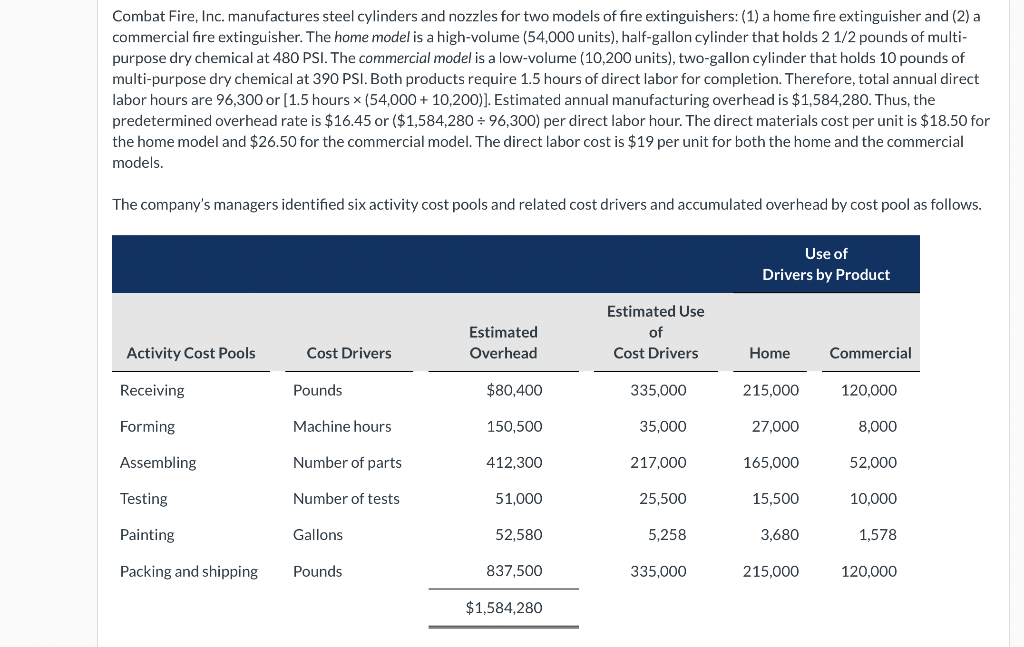

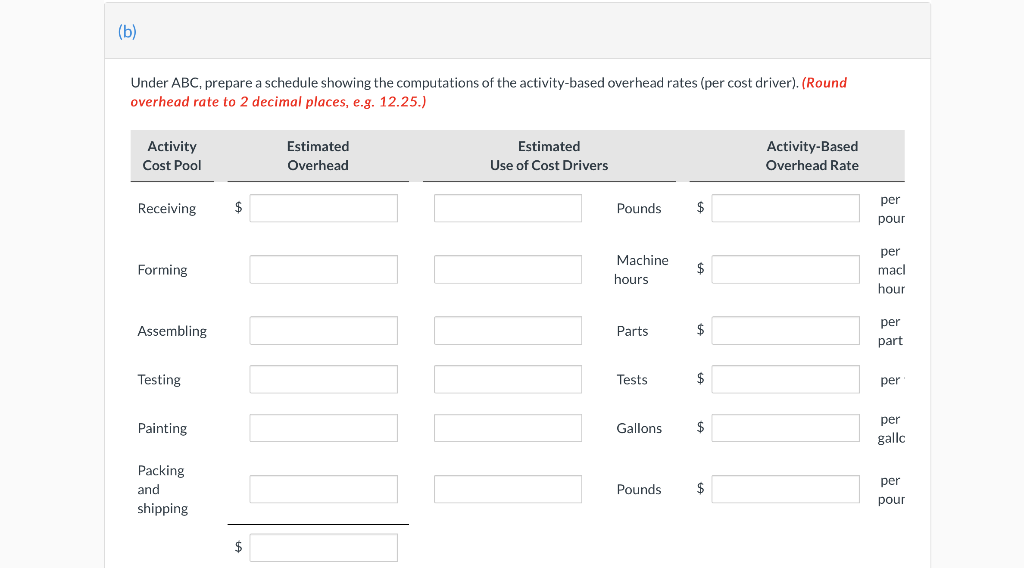
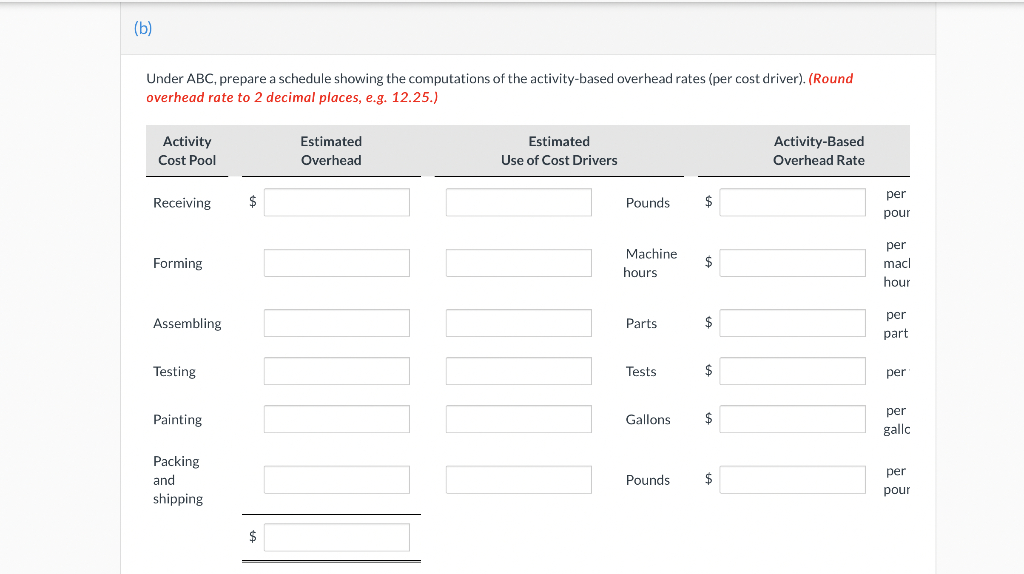
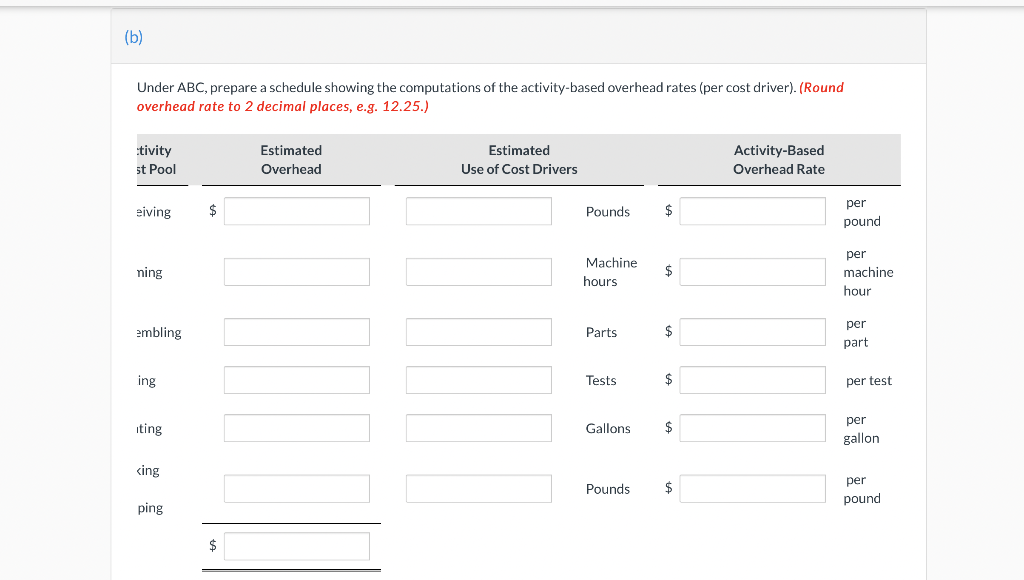
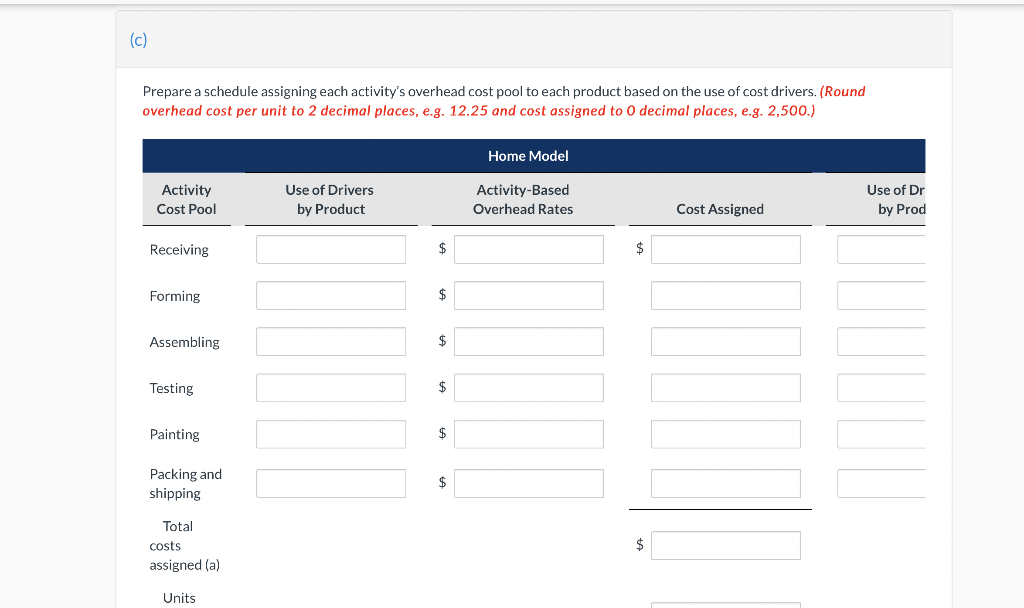

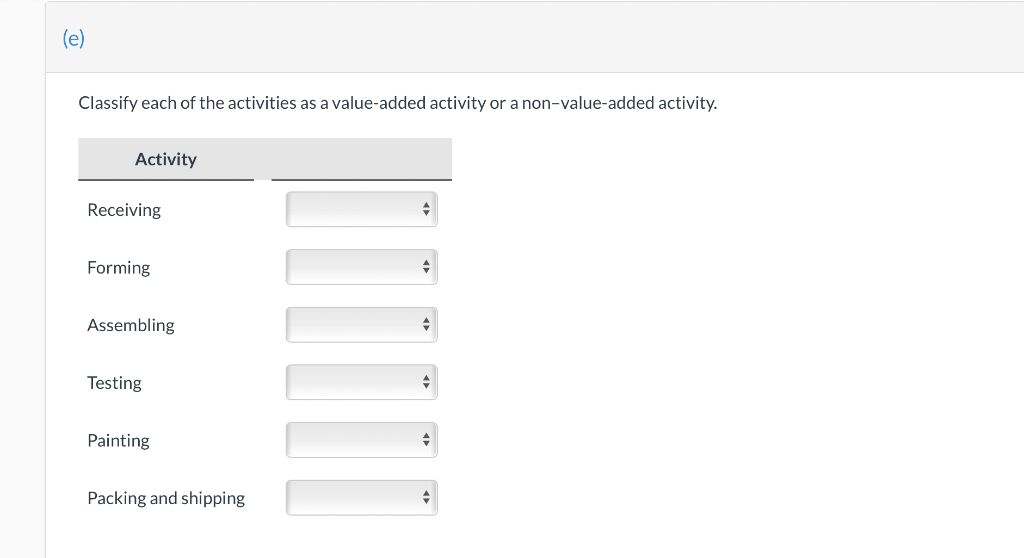
Please do all parts of A, B, and C : )
Thank you, I'll be sure to leave a good review : )
Combat Fire, Inc. manufactures steel cylinders and nozzles for two models of fire extinguishers: (1) a home fire extinguisher and (2) a commercial fire extinguisher. The home model is a high-volume (54,000 units), half-gallon cylinder that holds 21/2 pounds of multipurpose dry chemical at 480 PSI. The commercial model is a low-volume (10,200 units), two-gallon cylinder that holds 10 pounds of multi-purpose dry chemical at 390PSI. Both products require 1.5 hours of direct labor for completion. Therefore, total annual direct labor hours are 96,300 or [1.5 hours (54,000+10,200)]. Estimated annual manufacturing overhead is $1,584,280. Thus, the predetermined overhead rate is $16.45 or ($1,584,28096,300) per direct labor hour. The direct materials cost per unit is $18.50 for the home model and $26.50 for the commercial model. The direct labor cost is $19 per unit for both the home and the commercial models. The company's managers identified six activity cost pools and related cost drivers and accumulated overhead by cost pool as follows. Under traditional product costing, compute the total unit cost of each product. (Round answers to 2 decimal places, e.g. 12.50.) Under ABC, prepare a schedule showing the computations of the activity-based overhead rates (per cost driver). (Round overhead rate to 2 decimal places, e.g. 12.25.) Under ABC, prepare a schedule showing the computations of the activity-based overhead rates (per cost driver). (Round overhead rate to 2 decimal places, e.g. 12.25.) Under ABC, prepare a schedule showing the computations of the activity-based overhead rates (per cost driver). (Round overhead rate to 2 decimal places, e.g. 12.25.) Prepare a schedule assigning each activity's overhead cost pool to each product based on the use of cost drivers. (Round overhead cost per unit to 2 decimal places, e.g. 12.25 and cost assigned to 0 decimal places, e.g. 2,500.) Compute the total cost per unit for each product under ABC. (Round answers to 2 decimal places, e.g. 12.25.) Classify each of the activities as a value-added activity or a non-value-added activityStep by Step Solution
There are 3 Steps involved in it
Step: 1

Get Instant Access to Expert-Tailored Solutions
See step-by-step solutions with expert insights and AI powered tools for academic success
Step: 2

Step: 3

Ace Your Homework with AI
Get the answers you need in no time with our AI-driven, step-by-step assistance
Get Started


